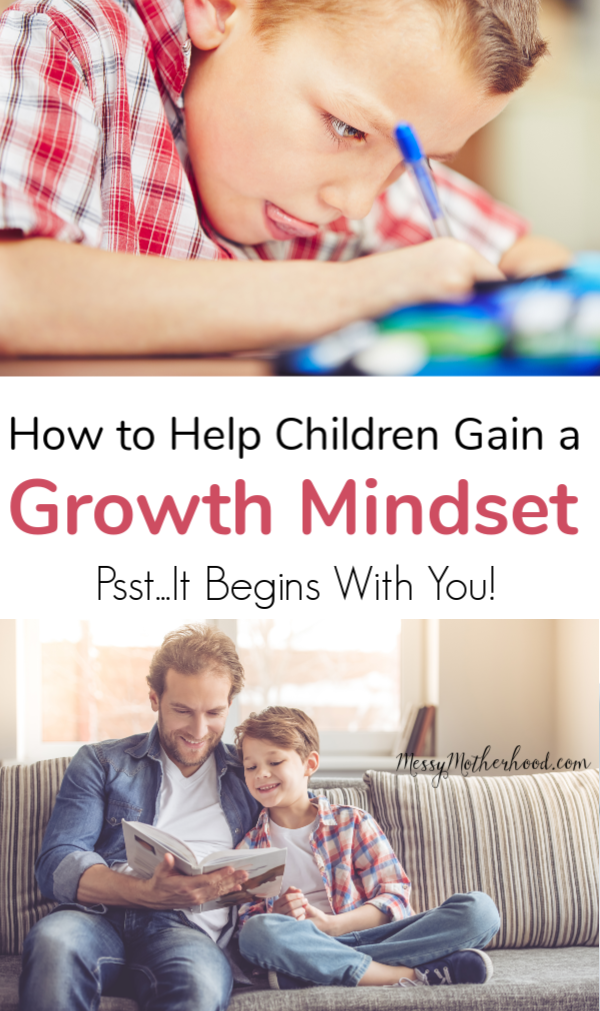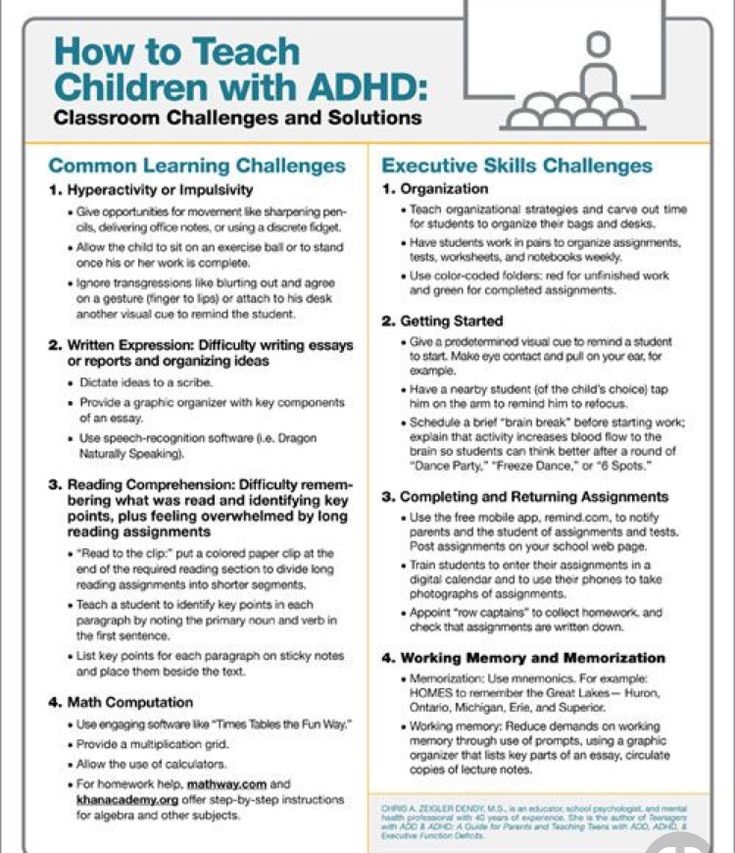How to help your child with algebra
Math Apps to Help Your Teen Child with Algebra Homework
11/17/2018 17 Comments
| Are you looking for an easy way to help your child get through middle school or high school math homework with a smile and newfound confidence? |
Here are some of my favorite Apps to help you help your child:
1. IXL- Math and English
This app gives in-depth and interactive explanations for so many concepts! (Over 5,700 including English Language Arts.) You can master specific math skills by exploring awesome questions.
I love this app, because it connects to the Common Core State Standards. If your child’s teacher organizes the curriculum by standard, all you have to do is go to the correct grade and scroll down to find the standard.
2. MathPapa
This app is a must-have if your child is in an algebra course. It’s basically just a calculator for algebraic equations; it’s perfect if you or child gets stuck on a problem.
It’s simple to use. All you do is plug the algebraic problem (ex. 5x + 3= 28), and it’ll quickly provide you with step-by-step solutions. It even gives you a graph of your solutions and solves linear and quadratic equations!
3. Khan Academy
I have been a huge fan of Khan Academy for years! Their tagline is “You can learn anything.” And it is so true.
They have over 10,000 videos and explanations in math, science, and more. Simply search the math concept you’d like to master. The concepts are also aligned with the common core.
4. Photomath
Stuck on a problem? Just snap a photo of it with this app! It can read problems ranging from arithmetic to calculus. It shows step-by-step solutions and graphs equations.
5. GeoGebra Graphing Calculator
If your child is taking Algebra I, Algebra II, High School Geometry, Pre-Calc, or Calculus, you should probably just go ahead and download this now. GeoGebra Graphing calculator allows you to easily graph functions and equations, and find special points. Additionally, you can save your work to go back later, and share with friends.
GeoGebra Graphing calculator allows you to easily graph functions and equations, and find special points. Additionally, you can save your work to go back later, and share with friends.
6. Quick Math
Need to brush up on your arithmetic? This addictive and easy-to-use app improves your arithmetic skills through speed and repetition. Warning: you may not be able to put it down!
7. HMH FUSE: Algebra 1
If your child is in Algebra 1, look no further. This award-winning app provides you with engaging curriculum all about Algebra 1.
It gives every student a personalized learning experience.
8. Learn Precalculus and Calculus
This app is perfect for guiding yourself through precalculus and calculus, or if your child seems to be falling behind in class.
It offers quick videos and even an AI coach to guide you through the learning!
Don’t forget to pin the post to save this page for later! You’ll remember where to go when you need this to get through the next rough patch of math homework. For more support, check out this post as well: Support Your Teen with Math
For more support, check out this post as well: Support Your Teen with Math
How to Help Your Child With Algebra
Skip to contentAh, Algebra.. the subject that seems to stump parents and students everywhere. Figuring out how to help your child with algebra homework can be frustrating, especially with the difference in math standards taught now as opposed to our school years. The miscommunication between you and your child will often lead to stress and panic instead of a positive experience.
Despite the negative rep algebra has, it’s important to remember that you don’t need to be a mathematician to effectively help your child with their homework. With a little bit of guidance, you can effectively help reinforce algebra concepts your child learns during the day and set them up for future success.
Algebra by Grade-LevelAlthough Algebra isn’t normally taught until 8th or 9th grade, the math concepts your child learns during elementary and middle school give them the foundational knowledge they need for these classes. In most standard public school settings, a student will take algebra I and algebra II as a graduation requirement. With that said, the required math courses for high school graduation vary by state.
In most standard public school settings, a student will take algebra I and algebra II as a graduation requirement. With that said, the required math courses for high school graduation vary by state.
In a typical setting, a student would take Algebra I during their 8th or 9th grade year. Algebra II is then taken the following year. As these classes progress in difficulty, your child may develop an aversion to math. When this happens, it’s important to be prepared to help.
Algebra Tips to Guide Your ChildIf you notice your child struggling with their coursework, there are several things you can do to help. By remaining calm and finding ways to help, whether from you or someone else, your child will have a far less difficult time navigating algebraic concepts.
Let’s take a look at five beneficial things you can do in your role as their parent.
1. Don’t Project Your Own AnxietiesMath aversions are incredibly common, even for long after you finish your school years. This is especially true if you’re female. Studies show that math anxiety is more common amongst females than males. If you experience math anxiety, it’s important to make sure you don’t project those fears onto your child. If they can physically see or sense that a math concept is making you nervous, they’re going to feed on that emotion and the situation will only get worse.
This is especially true if you’re female. Studies show that math anxiety is more common amongst females than males. If you experience math anxiety, it’s important to make sure you don’t project those fears onto your child. If they can physically see or sense that a math concept is making you nervous, they’re going to feed on that emotion and the situation will only get worse.
It’s okay to admit that math isn’t your strong suit. If this is the case, you should take some time to either re-familiarize yourself with the content or seek outside help from a tutor, and implement strategies to reduce your student’s anxiety.
2. Find Ways to Incorporate in Daily LifeWhile algebra may look scary on paper, it’s an integral part of our daily life. If you incorporate your child’s algebra homework with a situation in their typical day, the concept is more likely to stick.
For example, let’s say they need to set an alarm to wake up in time for school. If your child has a specific morning routine, they need to calculate how long each task will take before determining how early they should set their alarm for. Algebra is also an integral part in sports. When playing basketball, a player needs to calculate the trajectory needed in order for them to score a point.
Algebra is also an integral part in sports. When playing basketball, a player needs to calculate the trajectory needed in order for them to score a point.
Regardless of your child’s routine or interests, there are plenty of ways to incorporate algebra practice in your daily life.
3. Re-familiarize Yourself With Algebra ConceptsRe-familiarizing yourself with the concepts your child is learning will help you to help them. It also takes the stress away from trying to figure out answers alongside your child. With that said, we understand that math isn’t always a favorite subject and re-learning concepts can take time.
To help with that disconnect, Piqosity offers algebra courses at the Algebra I and Algebra II levels. While these were designed for students, they also serve as a wonderful tool for parents to freshen up skills they may not have touched in decades.
4. Don’t be Afraid to Try “New Math”The “new math” put in place through Common Core in 2010 has sparked serious debate among parents and educators alike. While some find it easier, others have deemed it “difficult and unnecessary.”
While some find it easier, others have deemed it “difficult and unnecessary.”
Regardless of the camp you’re in on the matter, we encourage you to give it a shot. The purpose of new math is to introduce students to a new way of approaching math problems. Rather than focusing on solely memorizing math facts and concepts, new math gives them the opportunity to understand why a specific concept works the way it does.
If you take the time to learn the basics of common core algebra, you’re going to have a far less stressful experience in helping your child. A low-stress experience, in turn, will allow your child to have an easier time fully comprehending a concept.
5. Find Outside HelpAt some point, you may decide that you aren’t equipped to help with their homework. Rather than continuously working on something that is causing stress for everyone involved, using an outside resource can be beneficial.
If this is the case for you, we urge you to check out some of our resources. Piqosity offers online algebra courses at the 9th and 10th grade levels. On top of that, you and your child can utilize our math tutoring app when a concept is causing frustration.
Piqosity offers online algebra courses at the 9th and 10th grade levels. On top of that, you and your child can utilize our math tutoring app when a concept is causing frustration.
If you’re struggling with how to help your child with algebra, just know you aren’t alone. Algebra is a sore spot for many people who have math aversion but it’s important for your child’s academic and mental health that you refrain from projecting onto them.
By following the tips we’ve included in this article, you’ll be well-equipped to help the next time your child asks for homework help.
More Educational Resources by Piqosity:
- When Do You Take the ACT?
- A Guide to Private School Interview Questions
- Can You Retake the ACT? And Should You?
- Improve Your Reading and Writing Skills
- Online Programs for Math and Reading Help
Josephine is a writer, mother, and avid reader. She homeschools her two daughters and teaches ELA and nature study classes at a co-op one day a week. When she isn't reading, writing, or teaching, she spends her free time hiking and practicing yoga with her girls.
She homeschools her two daughters and teaches ELA and nature study classes at a co-op one day a week. When she isn't reading, writing, or teaching, she spends her free time hiking and practicing yoga with her girls.
How to help a child fall in love with mathematics
Social stereotypes divide people into techies and humanitarians. It is generally accepted that the former perceive information through numbers and algorithms, they have better developed logical thinking, and the latter cognize the world with the help of feelings and images, they are able to create and generate ideas.
For the first time such a division occurs at school. If it is difficult with the exact sciences - you are a humanist, no matter how hard you try, nothing will come of mathematics anyway.
It used to be that a person from birth has a talent in a certain area, and this can be changed only if you intensively develop another direction from early childhood.
This approach has long been outdated. Scientists have proven that when a person has a problem that he has not encountered before, the brain allocates a group of neurons to solve it. Their formation is individual for each task, so one cannot speak of an innate predisposition to any skills: with due diligence, any person can learn anything. Even if it’s hard for a child to count mentally, in the future he will be able to become a great mathematician, you just have to want to.
In today's world there is no division into humanists and techies. A person can do what he wants, and not focus on "innate" abilities.
Success in a particular subject largely depends on the charisma and teaching style of the teacher. Continuous cramming can discourage a student from studying mathematics, even if the child has a predisposition.
In the modern world, universal specialists are valued who can work with numbers, algorithms and texts, apply a creative approach, rely on a variety of skills and abilities. For example, a good programmer knows foreign languages, and a game designer should be able to edit the game script and creatively work out the characters.
For example, a good programmer knows foreign languages, and a game designer should be able to edit the game script and creatively work out the characters.
How to captivate a child with mathematics
To form an interest in algebra and geometry, tell your child how these subjects will be useful in life and how they can be applied in practice.
<
5 reasons to love math:
- Regular solving of equations and problems trains the brain, improves memory, develops mindfulness and broadens one's horizons.
- Mathematics can be needed at any time in everyday life, for example, to find out how many days pocket money will last.
- There are calculations in many sciences, for example, chemistry, physics, geography. Even the humanities - languages and literature - are based on mathematical and logical laws.
- For those who are seriously engaged in algebra and geometry, there is beauty and harmony hidden in them, akin to music - with deep study, love for mathematics appears.

The math is actually very simple. It has only two aspects. The first is the rigor of logical thinking. The inability to trace cause-and-effect relationships is a big problem for mankind. Because of this, many conflicts occur. Mathematics, on the other hand, allows you to determine whether "A" follows from "B" at the level of reflexes. If something is not said in the task, you do not have the right to assume it, and if it is said, you cannot ignore it. And the second is applied skills. Everything that surrounds us is of engineering origin. Mathematics helps to understand how it all works.
Vladimir Sharich, teacher of mathematics at Foxford External School
However, the speed of assimilation of the material for all children is individual, so it is important to devote enough time to each topic in order to understand and work through it qualitatively. So, the students of the "Externship and Foxford Home School" can move at their own pace. Classes are held in the online broadcast mode, when you can immediately chat with the teacher and ask him any questions. All videos are saved, they can be studied at any time and watched again. For children who are passionate about this subject and want to participate in olympiads, there is a mathematical educational route in the Foxford External Study.
Classes are held in the online broadcast mode, when you can immediately chat with the teacher and ask him any questions. All videos are saved, they can be studied at any time and watched again. For children who are passionate about this subject and want to participate in olympiads, there is a mathematical educational route in the Foxford External Study.
5 ways to fall in love with mathematics
The main thing is to make classes interesting. Here are some tips to help the whole family have a fun and rewarding time learning STEM and love math.
Find math in real life
Exact sciences surround us everywhere, and if you show this to a child, then he will never have a question: “Where can I use algebra and geometry?”.
You can start with something simple: count change in a store or name the shapes of ordinary objects (a glass is a cylinder, a bed is a rectangle, and so on).
The older a person is, the more interesting the mathematics around him becomes. A high school student can be entrusted with maintaining a family budget or planning finances for a vacation. All this will become a daily training of mathematical thinking.
A high school student can be entrusted with maintaining a family budget or planning finances for a vacation. All this will become a daily training of mathematical thinking.
Start playing to love math
Computer and board games are great for developing interest in mathematics. The advantage of board games is that it is a hobby for the whole family. An interesting math game "7 by 9will appeal to both children and adults. In it, each card is closed by the one on which the sum of the numbers shown is higher. This is a great way to practice mental counting and reaction speed: whoever gets rid of the cards first wins.
Source: freepik.comThere are many free interactive puzzles on the Internet. For example, in the application "Math. Puzzles and math game" with 100 difficulty levels, each of which has an original task - a convenient and quick workout that will help you get carried away with mathematics.
Solve difficult problems
Examples in textbooks are sometimes boring, and for those who have already understood the topic, they may seem too easy. To prevent your child from falling out of love with mathematics, stir up interest with difficult but feasible puzzles. Many of these problems are written specifically for Olympiads.
To prevent your child from falling out of love with mathematics, stir up interest with difficult but feasible puzzles. Many of these problems are written specifically for Olympiads.
Read books
Paradoxically, literature can increase interest in mathematics and inspire one's own research. Artistic stories about mathematics and unusual collections and problem books are suitable for younger schoolchildren and teenagers. We advise you to pay attention to these books: Lev Gendenstein "Alice in the Land of Mathematics", Vladimir Levshin "Master of Dispersed Sciences: Mathematical Trilogy", Igor Sharygin "Lessons of Grandpa Gavrila, or Developing Holidays". In each of them, a bright hero comprehends the wisdom of mathematics, and without the help of the reader he can not cope.
Lev Gendenstein "Alice in the Land of Mathematics" Biographies of famous researchers and popular science books are suitable for older people. Have your child read The Pleasure of X by Stephen Strogatz or The Magic of Math by Arthur Benjamin.
Watch educational videos
Short video lectures are a convenient format to fall in love with math. We recommend a popular YouTube channel for those who are interested in the exact sciences and are ready to go beyond the school curriculum - Sibscience, run by real scientists. They cover everything from basic geometry to game theory and economics.
Foxford Externship basic courses will also help stimulate interest in mathematics and prepare for assessments in this subject. Choose the right class in the catalog and learn the beauty of algebra and geometry together with teachers from the best universities in the country!
How to help your child learn algebra
Algebra helps develop systemic and logical thinking. Therefore, parents should interest their child in studying this section of mathematics.
Schooling is not easy for many children, especially when it comes to exact sciences. Mathematics, in particular algebra, is becoming one of the most unloved and difficult subjects that have to be memorized. And homework brings the child and his parents only negative emotions and irritability.
Mathematics, in particular algebra, is becoming one of the most unloved and difficult subjects that have to be memorized. And homework brings the child and his parents only negative emotions and irritability.
Algebra as a branch of mathematics helps to develop systemic and logical thinking. In the future, the child will be able to easily analyze the situation and make the right decisions. Therefore, parents should pay more attention to the problem of their child's dislike for this science and be able to interest him in learning.
Many people use 7th grade algebra in their GDZ lessons or use the services of tutors. The main thing is that teachers should be able to convey and explain the essence of the subject to the student, and not just train him to solve equations correctly.
In our article you will find general tips on how to help your child learn algebra and instill respect for this branch of mathematics.
1. Algebra is an exact and consistent science. If at the beginning of the study of the subject the child does not learn some rule or theorem, then it will be almost impossible to understand new topics. Therefore, it is worth studying algebra systematically. If the child has forgotten something, help him remember and, if possible, re-explain what he missed.
Algebra is an exact and consistent science. If at the beginning of the study of the subject the child does not learn some rule or theorem, then it will be almost impossible to understand new topics. Therefore, it is worth studying algebra systematically. If the child has forgotten something, help him remember and, if possible, re-explain what he missed.
2. When studying any school subject, it is important not to put pressure on the child and not to blame for bad grades. You definitely won’t instill a love for learning, but you’ll beat off the desire to go to school. Focus on your child's efforts and successes.
3. It is human nature to receive information through different channels: visual, auditory, kinetic. As you know, at school, a teacher cannot physically explain algebra to each student individually, based on his peculiarities of mastering science. Therefore, parents should try to present information at home in other ways, more understandable to their child.
4. It is not advisable for students to use a calculator when performing any computational activities. So the child will have to strain their brains and learn to think for themselves. It might be worth teaching him one of the quick counting techniques.
5. It is much easier for a child to learn information using familiar and understandable examples. Try to explain the material based on the hobbies of the child.
6. Do not forget to systematically ask your child about the topics covered. So you will not only refresh the fading knowledge in your memory, but also figure out if your student understands everything.
7. Explain to your child that it is okay not to know something. Allow the student to look at the VIPgdz educational Internet resource, and also advise them not to be afraid and not to be shy about asking a teacher for help. A good teacher will never refuse a student to explain an incomprehensible theorem.












